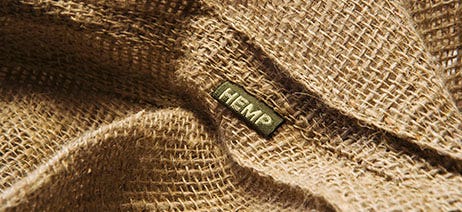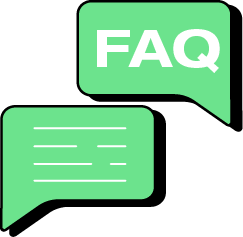
Hemp vs Marijuana vs Cannabis: What’s the Difference?
When it comes to terms like hemp, marijuana, and cannabis, things can get confusing. While these words are often used interchangeably, they refer to different aspects of the same plant species. Whether you’re interested in the medicinal benefits of CBD or wondering if hemp truly is different from marijuana, this guide will help clarify the distinctions, similarities, and hemp’s relationship to cannabis.
Here’s what you’ll learn:
- What is Hemp?
- History of Hemp
- What Are Hemp-Derived Cannabinoids?
- Hemp CBD vs Marijuana CBD
- Hemp THC vs Marijuana THC
- Answering FAQs About Hemp
What is Hemp?
What we know as “Cannabis” is a plant of the Cannabaceae family, and hemp is a subspecies that is grown specifically to have less than 0.3% delta-9 THC.1 In contrast, “marijuana” refers to the subspecies of the cannabis plant that is typically bred to have higher concentrations of delta-9 THC, sometimes reaching up to 30%.2 Though hemp has very little THC, it is rich in CBD. Hemp-derived CBD products are widely available due to the legalization of hemp in the 2018 Farm Bill.3
So how are hemp and marijuana different? Botanically speaking, they belong to the same species of plant. That said, when people talk about “marijuana,” they are most likely referring to cannabis with higher potencies of delta-9 THC, not hemp, with its 0.3% delta-9 THC limit.


History of Hemp
Hemp has been cultivated for thousands of years, serving as a vital resource for everything from textiles to food. Its historical significance spans many cultures, and its uses and legal status have evolved over time.
Ancient Crop
Hemp has a long and rich history, dating back over 10,000 years. It has been cultivated for various uses across ancient civilizations, making it one of the oldest domesticated crops. Historically, the whole hemp plant was valued for its versatility, with its fibers, seeds, and oils being used for everything from making clothes and rope to producing paper and food.4 Even notable figures like Thomas Jefferson grew hemp for its practical uses. Evidence of hemp cultivation has been discovered in regions as diverse as the Czech Republic, China, and Greco-Roman cultures.5
From Cannabis to “Marijuana”
During the 19th century, this plant was referred to as “cannabis.” The term “marijuana” didn’t come into widespread use until the early 20th century, introduced to describe smokable cannabis brought into the U.S. from Mexico.6 Unfortunately, the word “marijuana” was used to play on anti-immigrant sentiments. The implications of this originally derisive term eventually spread to include African-American jazz culture and immigrants from India, who also brought indica strains with them.
This shift in terminology marked the beginning of the stigmatization of cannabis, which would later lead to onerous legal restrictions.7
Marihuana Tax Act of 1937
In 1937, the U.S. government passed the Marihuana Tax Act, which effectively criminalized the possession and sale of marijuana.8 These restrictions were driven by political fearmongering and misinformation, leading to the eventual creation of the Drug Enforcement Agency (DEA) and the broader War on Drugs. This period saw the criminalization of cannabis and hemp, which negatively impacted industries that relied on the plant for its industrial uses.9
Agriculture Improvement Act of 2018
Hemp regained its legal status in the United States with the Agriculture Improvement Act of 2018, commonly known as the 2018 Farm Bill. This bill made it legal for the private sector to grow industrial hemp as long as it contained no more than 0.3% delta-9 THC.
Why less than 0.3% delta-9 THC? In 1979, an author named Ernest Small wrote a book called “The Species Problem in Cannabis: Science & Semantics.”10 In it, he sought ways to tell the difference between hemp and marijuana, but ultimately was unable to because they are the same species: Cannabis sativa L. So, Small suggested that we classify hemp as any cannabis plant with no more than 0.3% delta-9 THC.
Later, when various Farm Bills were passed in Congress, that otherwise arbitrary measure was adopted to distinguish between the marijuana you consume for psychoactive effects and the industrial hemp we use for a whole host of products.


What Are Hemp-Derived Cannabinoids?
Under current U.S. law, delta-9 THC is the only cannabinoid defined for hemp regulation purposes. CBD, another well-known cannabinoid, is not legally defined under hemp regulations, leading to various legal loopholes. These loopholes allow companies to create hemp-derived cannabinoids, like delta-8 THC and even delta-9 THC, which are chemically converted from CBD that has been extracted from hemp plants.11
Hemp CBD vs Marijuana CBD
The cannabinoid, CBD, is the same, regardless of which plant it came from. The only difference between hemp-derived CBD and marijuana-derived CBD is the legality of the source. If you are purchasing a CBD product outside of a licensed dispensary, the CBD probably came from a hemp plant. If you purchase a full-spectrum CBD product from a state-licensed dispensary, you’re likely getting CBD from the marijuana plant. That means if you live in a state that does not offer a cannabis program, you may not be able to purchase full-spectrum CBD products.12
Hemp THC vs Marijuana THC
Similar to CBD, the actual cannabinoid, THC, is the same molecule no matter its plant of origin. The difference here is the quantity of delta-9 THC present in the plant of origin. Industrial hemp is required by federal law to have no more than 0.3% delta-9 THC.3 With that restriction, hemp can be used to make a plethora of products, including the CBD sold at your local store. Marijuana, on the other hand, has nearly no regulation on the amount of delta-9 THC it can contain, but it is not federally legal. Therefore, marijuana THC can only be sold in states that have legalized cannabis.
Is Hemp Legal?
Hemp is legal. However, many unscrupulous hemp product manufacturers skirt the law around hemp by making intoxicating cannabinoid products that are not subject to the same consumer protection standards that state-legal cannabis products have, like age-gating, proper packaging and labeling, and quality assurance testing, intended to ensure the product you purchase is the product you want. States have the right to regulate hemp products, so because hemp regulation varies from state to state, you should always check the rules in your area before making a purchase.




Answering FAQs About Hemp
The hemp vs marijuana debate can be confusing, so we’ve put together some common questions and answers. As always, if you’re still unsure about anything, our team at Verilife is ready to assist you with more information.
Is hemp cannabis?
From a botanical studies perspective, hemp, cannabis, and marijuana are the same plant: Cannabis sativa L. From a legal perspective in the United States, hemp is a separate plant that has less than 0.3% delta-9 THC.
Are hemp and CBD the same?
CBD is a cannabinoid found in the cannabis plant, which includes both hemp and marijuana. Hemp is simply one variety of cannabis plant that produces CBD.
Does hemp get you high?
Hemp contains no more than 0.3% delta-9 THC, which is likely not enough to make you feel intoxicated.
Can you smoke hemp?
Yes. People around the country smoke hemp for the other cannabinoids contained in the plant. That said, it’s important to remind you that you cannot become intoxicated by smoking hemp.
Is hemp oil and CBD oil the same thing?
Not exactly. Many hemp enthusiasts use the terms interchangeably. So for some, hemp oil and CBD oil are the same thing—an oil made from the hemp plant that contains CBD. For other fans of hemp, hemp oil is a reference to hemp seed oil, an oil extracted from hemp seeds that contains a variety of nutrients, like vitamin D, and compounds, like omega-3 fatty acids, but no CBD.13
Why can I buy THC products outside of a dispensary?
THC products sold outside of dispensaries are typically derived from legal hemp. These products are made by converting CBD into THC through a chemical process, which is why they are sold in many places, even in states where cannabis is otherwise illegal.


Understanding Hemp
Industrial hemp plants provide countless products to people around the world, including plastic, clothing, flour, cosmetics, and more. Because hemp is legal, it also helps move certain cannabinoid research forward, allowing us to continue to study the various compounds contained in this fascinating plant. Like with all things cannabis, we hope to see this plant thrive, legally, once more.
Sources:
1. “Is Hemp The Same Thing As Marijuana?” NC State University News, February 14, 2019, https://news.ncsu.edu/2019/02/is-hemp-the-same-thing-as-marijuana/
2. “What is the difference between hemp and marijuana?” ARA Medical Cannabis Institute, https://arapc.com/wp-content/uploads/2023/10/Hemp2_final.pdf
3. “Hemp vs. Marijuana: What’s the Difference?” Healthline, February 13, 2023, https://www.healthline.com/health/hemp-vs-marijuana
4. “Industrial Hemp (Cannabis sativa subsp. sativa) as an Emerging Source for Value-Added Functional Food Ingredients and Nutraceuticals,” National Library of Medicine, September 7, 2020, https://pmc.ncbi.nlm.nih.gov/articles/PMC7571072/
5. “What’s the difference between hemp and marijuana?” Weedmaps, https://weedmaps.com/learn/products-and-how-to-consume/hemp-vs-marijuana
6. “The terms ‘hemp’ vs ‘marijuana’ vs ‘cannabis,’” MMP, https://www.mpp.org/policy/federal/the-terms-hemp-vs-marijuana-vs-cannabis/
7. “The Mysterious History of ‘Marijuana,’” NRP, July 22, 2013, https://www.npr.org/sections/codeswitch/2013/07/14/201981025/the-mysterious-history-of-marijuana
8. “The Marijuana Tax Act of 1937,” JAMA Network, February 1972, https://jamanetwork.com/journals/jamapsychiatry/article-abstract/490581
9. “Marijuana Law in the United States: History of Marijuana Regulation in the United States,” University of Georgia, https://libguides.law.uga.edu/c.php?g=522835&p=3575350
10. “The Species Problem in Cannabis,” 1979, https://books.google.ca/books/about/The_Species_Problem_in_Cannabis.html?id=lb8gAQAAIAAJ&hl=en
11. “The Farm Bill, hemp legalization and the status of CBD: An explainer,” Brookings, December 14, 2018, https://www.brookings.edu/articles/the-farm-bill-hemp-and-cbd-explainer/
12. “What is the difference between hemp CBD and cannabis CBD?” Medical News Today, November 17, 2023, https://www.medicalnewstoday.com/articles/hemp-cbd-vs-cannabis-cbd
13. “What is the difference between hemp seed oil and CBD oil?” MedicalNewsToday, https://www.medicalnewstoday.com/articles/hemp-seed-oil-vs-cbd-oil


